Dear Friends
“Are you sad that it’s almost over?” As we bumped our way on the 2-track out of the backcountry from our last cow camp, I was asking my 26-year-old Linnaea about coming off the range with the cattle in the next few days. She, along with our other daughters and some great crew members, has been one of the main driving forces up there in the high country, crew bossing and doing most of the route-finding to new camp locations. It’s been a challenging summer. There’s been some exceptionally rough and remote mountain country we’ve never grazed before, and the weather has been tempestuous, to put it mildly.
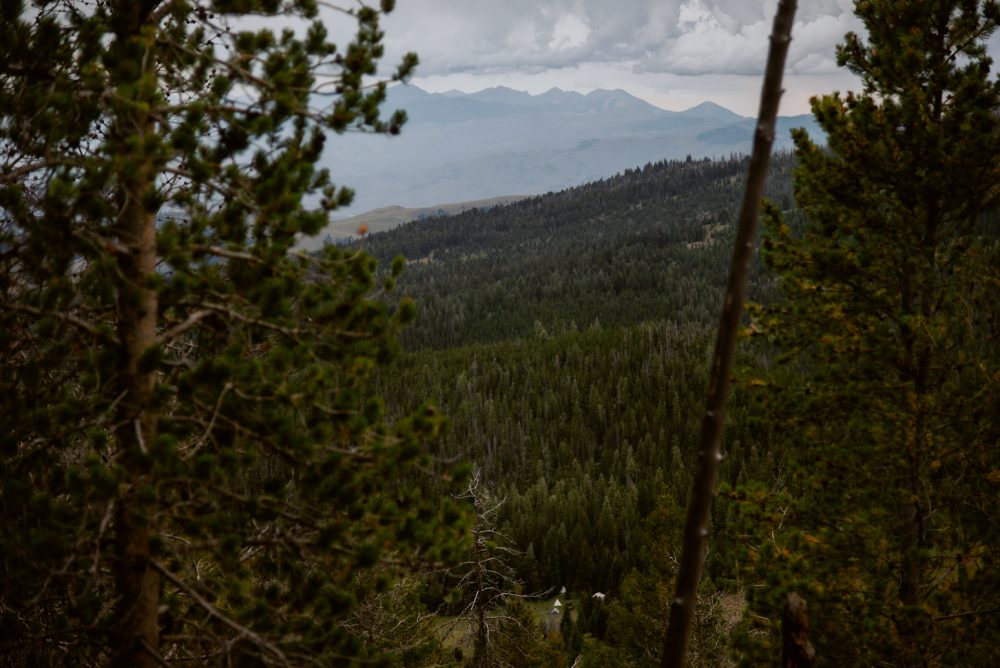
It’s been a hundred days, and about 600 miles. That’s how long and far the beeves and horses have walked over the season of green mountain grass. Today after 5 days on the trail from our highest camp, they have come back to the Pahsimeroi Valley, and are now grazing on a certified organic lease ranch just down the valley from Alderspring. They’ll finally make the 6th day of their journey and arrive home next week when we weigh every critter in the entire beef herd to get production metrics off the range grasses.
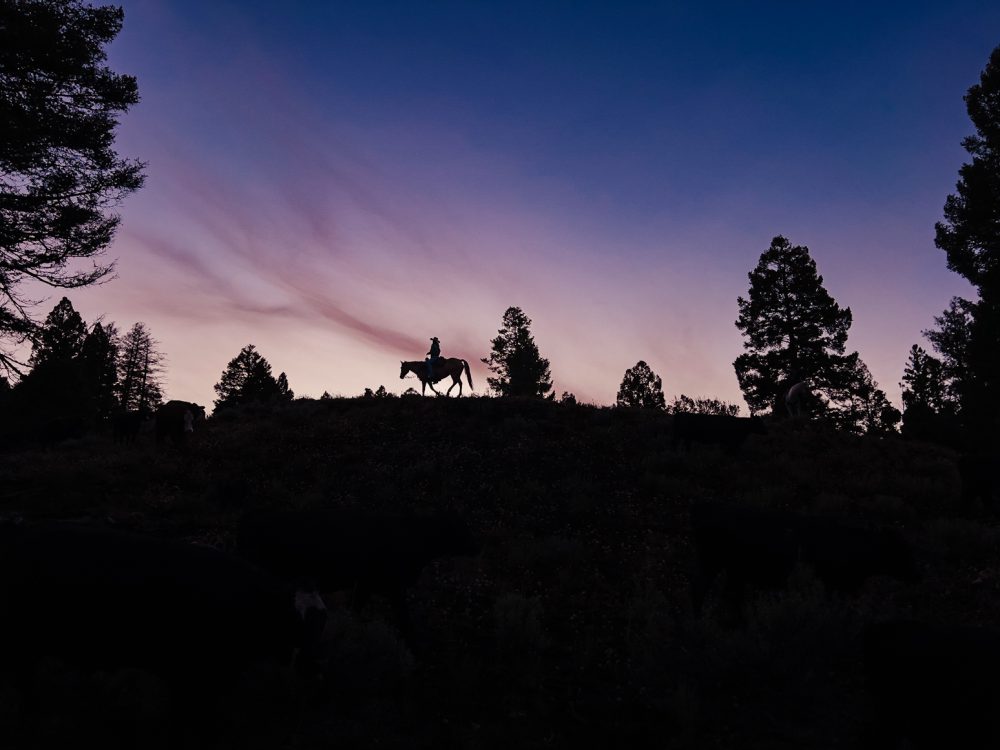
“Yes. I’ll miss it,” she said with a sad grin as she gazed at the 11,000-foot Lemhi Range ahead.
It was a little ironic for me. For nearly thirty years, I’ve done what she’s done. I know how brutal the range can be on the body and then, the mind. Sixteen to eighteen-hour days horseback, moving camps, setting stock water pipelines, putting hotwire out for horse pasture and running a cook shack back-to- back for weeks and months gets old. Sleeping on the ground often doesn’t work out perfectly sound (rocks and roots seem more common than not, despite the latest tech of a self-inflating sleeping pad).
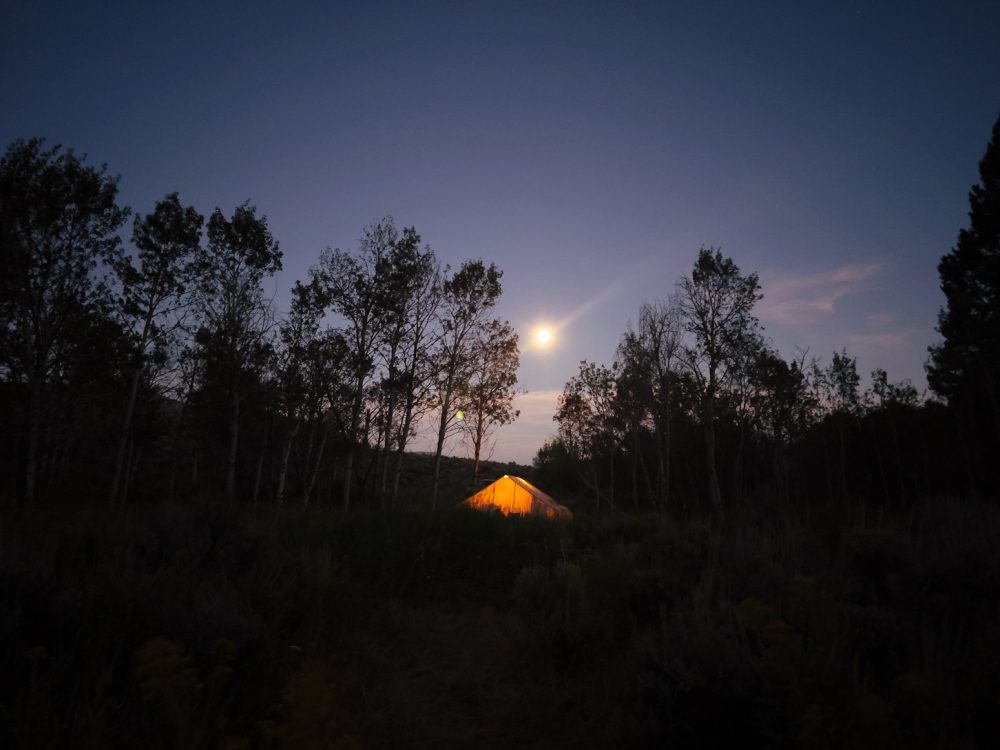
Hard rocks are one thing, but in addition to the palpable bumps, I’ve never slept soundly up there because of the audible bumps in the night. We’ve experienced several full on stampedes of three or four hundred head of cattle and horses on breakout from their hotwire night pens due to something that got them on the run (what was that, anyway?), so when the cattle start getting a little restless in the black night, I wake and lay alert until they settle. Sometimes, we’ll hear howls in the dark, waking us from an unsettled sleep. We lay there, wondering if they will come closer and if we will have to take some action (wolves have a real taste for organic grass-fed beef). Throughout the night, twigs snapping in the black forest wake me- probably deer, but maybe a bear. I lay there and listen.
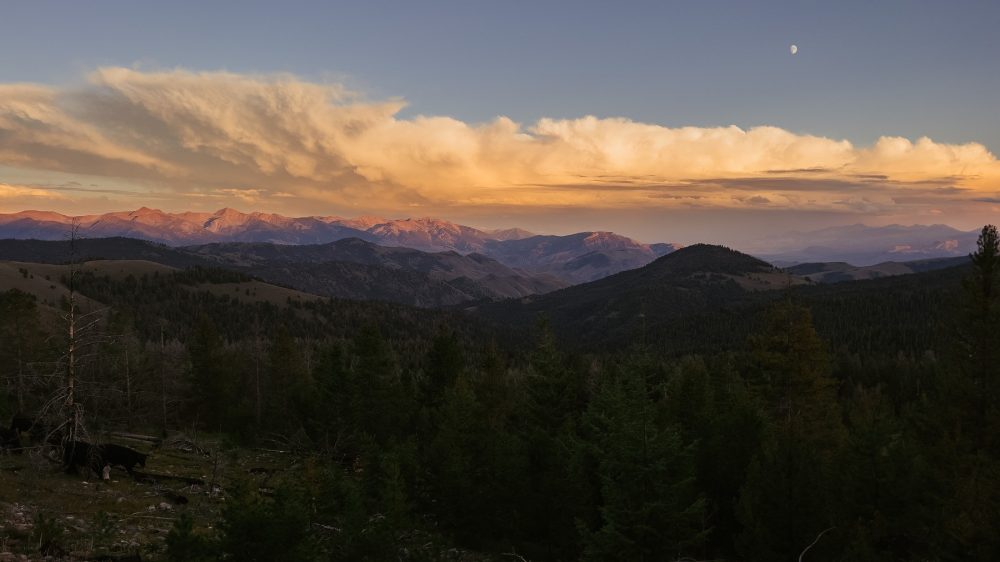
So much for sleep.
And weather. With days back-to-back of rain, the cold and wet soaks through clear to the soul. It works its way in through slicker and chaps, and in just a couple days, dry socks are hard to come by. Range riders put away horse wet for a night-time graze and that gear is rain soaked even after a night in the warm fog of the cook-tent. In the morning they saddle up a fresh wet horse and wet tack. The rain in the mountains is never warm. It is always ice-cold. I’ll say this: wet cold is soul-sucking.
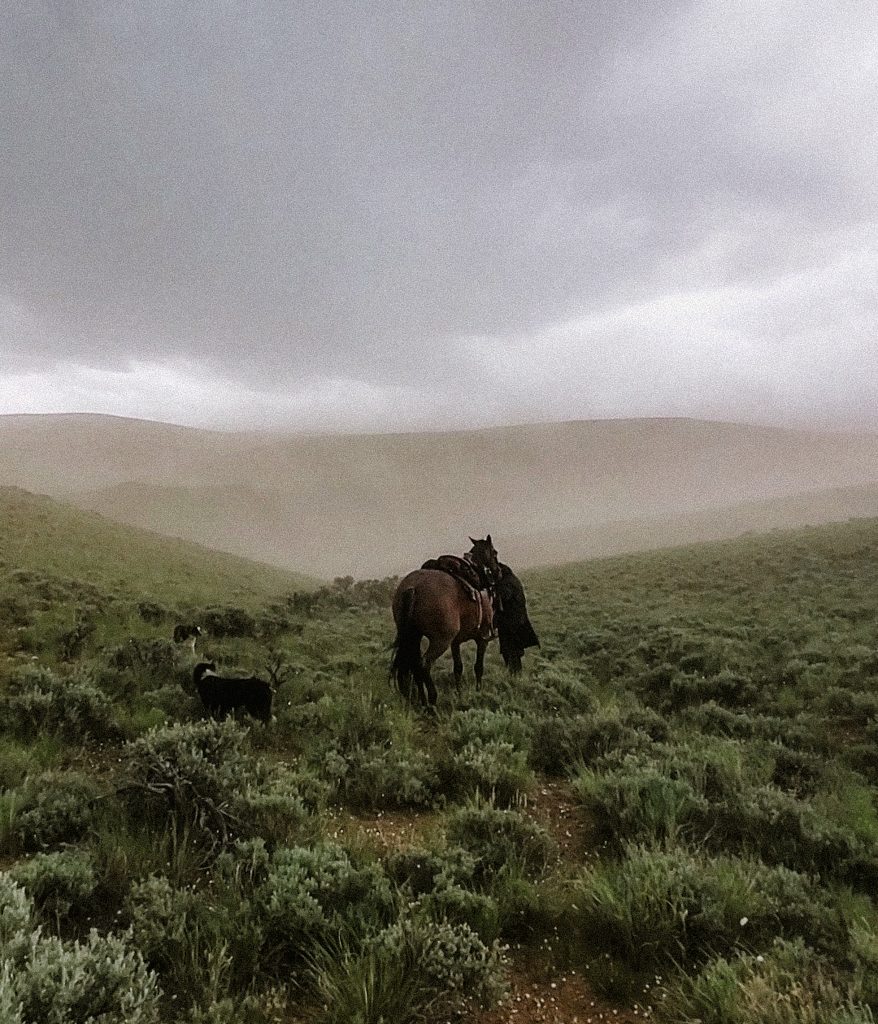
Weather again. It might be in the 30s. Or 90s. It could be either. Or both on the same day. Riders must prepare for both, because they might not be back at camp again until after dark. The heat sounds great until you’ve been through 5 straight days of it. You pull horse gear twice a day to make sure the sweat from it isn’t creating sores on a horse’s back. Horses with their distant desert and steppe blood ancestors get on well without water, but humans can’t pack enough canteen water themselves. Cracked and bleeding lips and sunburnt skin from high altitude sun are the norm.
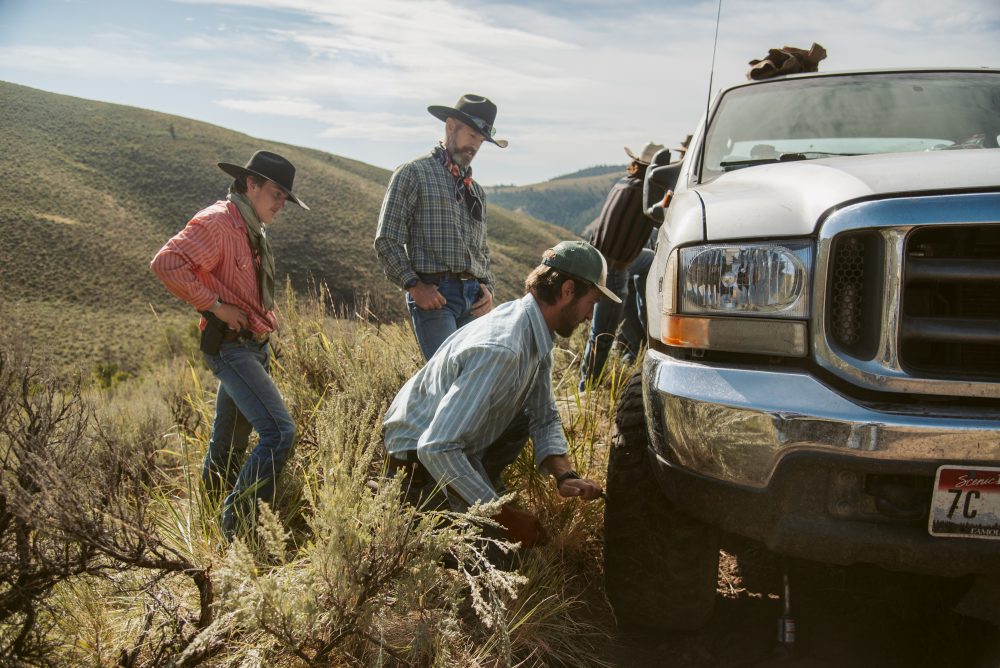
The one thing about mountain weather that is fully predictable is that it is not predictable. I’ll look up there to the grass ranges from the ranch on a 90-degree sunny day and note that it is pouring rain on the crew, just 20 miles away. I can see it streaking down from a random band of grey storm clouds sweetening the grass, to be sure, but soaking the crew.
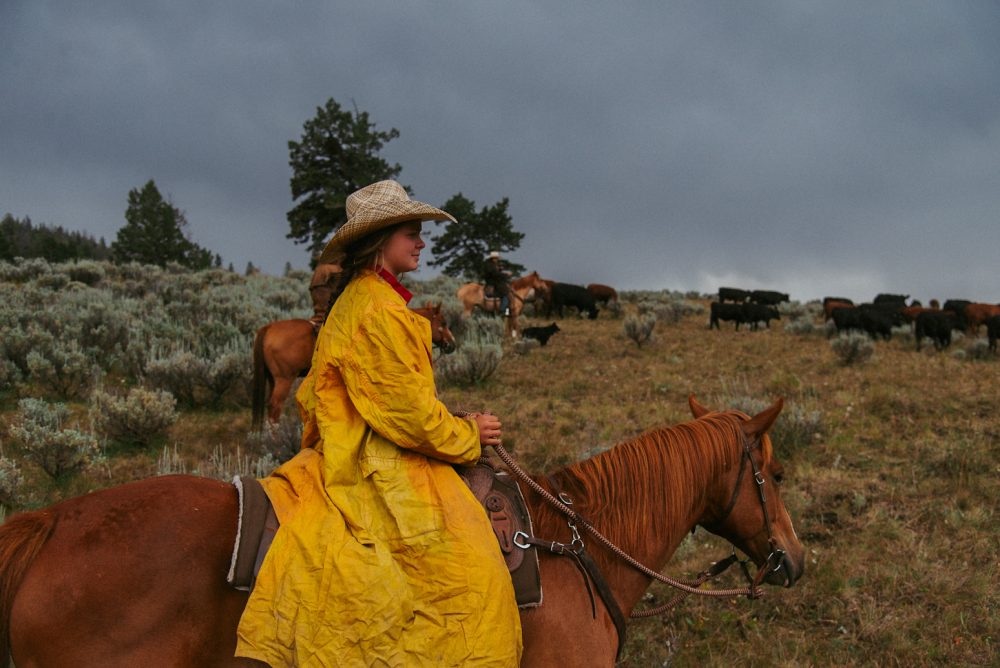
Then there’s tree branches, rattlers, scorpions, ticks, spiders and hornets. So much for beach legs. None of my girls have them.
Enough on us poor humans. Let’s face it, we aren’t made for outside in mountain environments. Here’s a thought, for you, dear reader: on all the above, I don’t think the cattle care in the slightest about all those discomforts. They’re impervious. They seem to relish the country, the walk, the graze, the plant diversity (who doesn’t like a full buffet dinner?). I’ve never seen them look down or discontent. They are clean, glossy, athletic, and getting fat. They have little to no flies on them. They are calm, relaxed, and obviously not stressed (there is no running away from us or fear of human or horse).
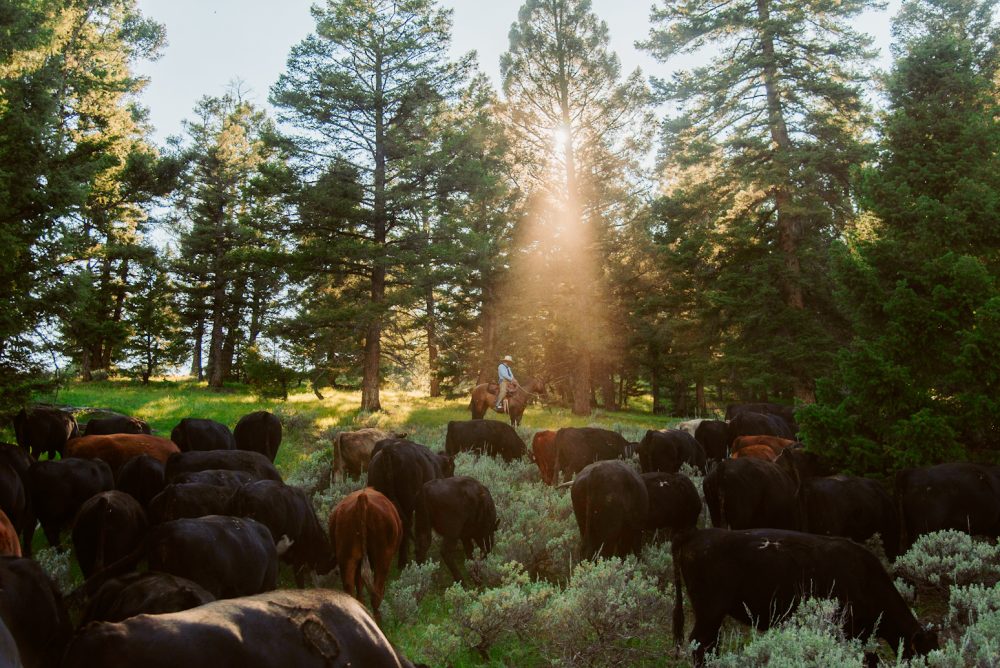
To be completely honest (and trying to be unbiased, here), I don’t think I’ve seen cattle look healthier.
I also don’t think I’ve seen the country look better. The landscape is rebounding because of the way we graze. By this I mean wild mountain ecosystems. The way we are grazing removes plant material very quickly (literally in minutes) and then lets the land rest for 3 to 7 years. We stopped grazing creeks altogether (there’s over 50 miles of them up there), and as a result, their wet habitats have exploded, multiplying the carrying capacity for everything from birds to beavers and trout to timber.
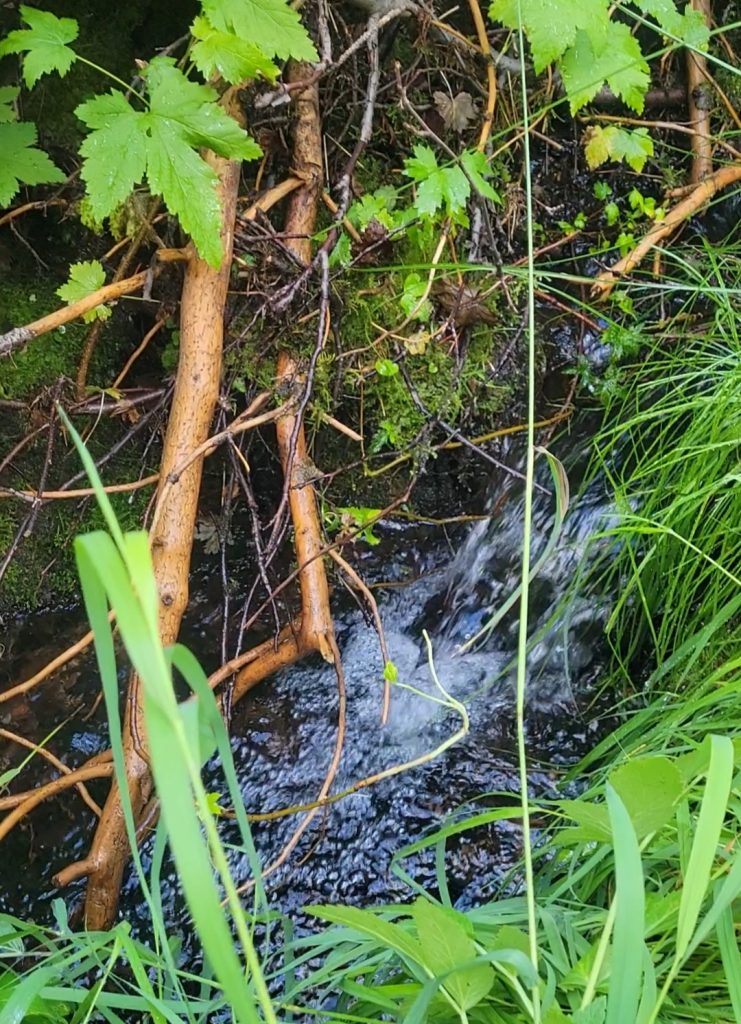
So those things make it worth it from a transactional standpoint. Cattle gain weight and are healthy, and ecosystems regenerate.
But there is, I think, something else that keeps the likes of Linnaea up there, going back year after year. It’s why when rider interns leave, I’ve often seen tears well up as they say goodbye, getting ready to fly back to Carolina, Florida, California, or Minnesota.
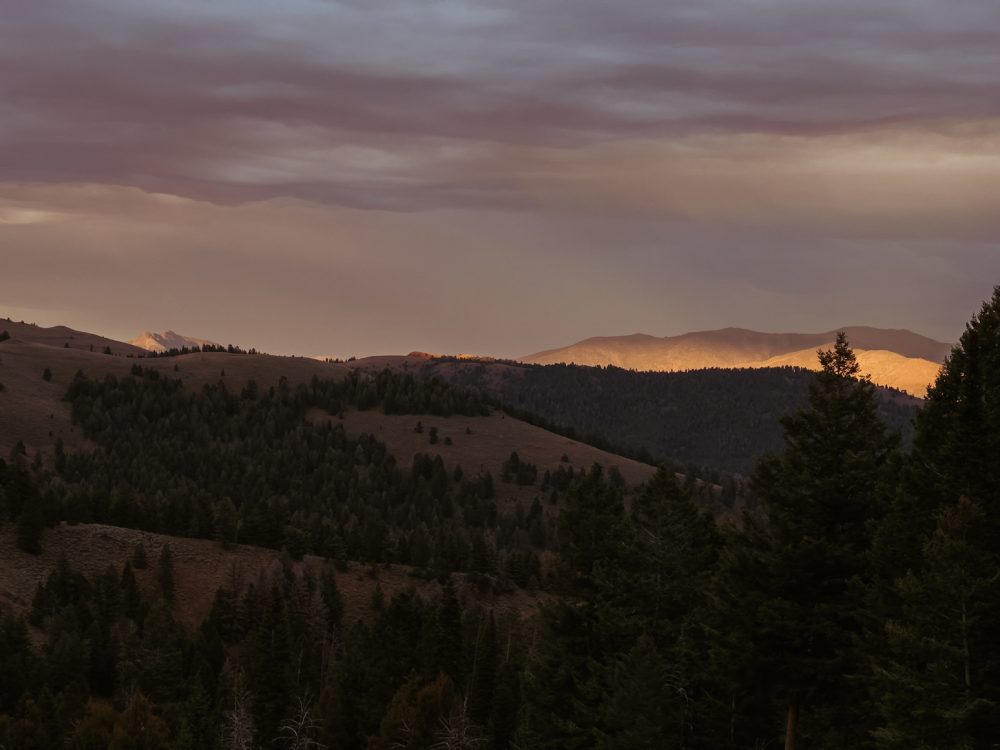
Why tears?
There certainly is a band of brothers-and-sisters vibe that permeates the crew. They learn to have each other’s backs and there’s plenty of wild mountain adversity that strength in numbers can see you through. They’ll keep in touch with each other for years to come, of that I am certain.
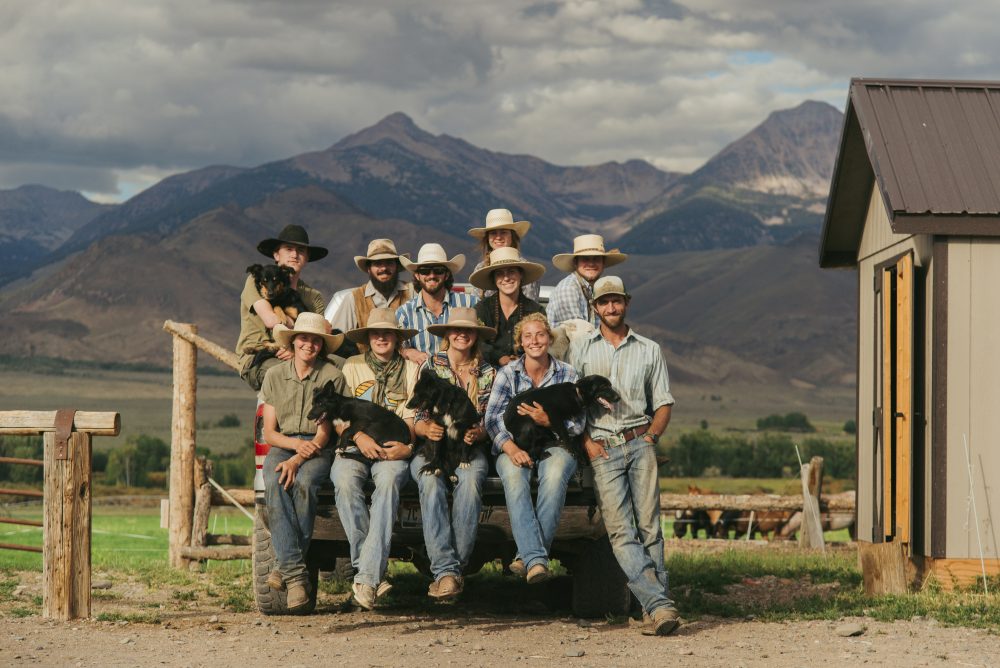
But I think there’s something more. What comes to mind is an older cowboy ballad about a range rider here in the mountain west who won’t head back home to his family and friends, and they don’t understand why. You’ve probably heard it. It goes like this:
Night Rider’s Lament
Lyrics and Music by Michael Burton
Last night as I was out a ridin’
graveyard shift, midnight ’till dawn
the moon was as bright as a readin’ light
for a letter from an old friend back home
Chorus:
He asked me why do you ride for your money
Why do you rope for short pay
You ain’t getting’ nowhere
And you’re losin’ your share
Boy, you must have gone crazy out there
But he’s never seen the Northern Lights
Never seen a hawk on the wing
He’s never seen Spring hit the Great Divide
And never heard Ol’ Camp Cookie sing
He tells me last night I run onto Jenny
she’s married and has a good life
Ah, you sure missed the track
when you never come back
she’s a perfect professional’s wife
Chorus:
She asked him why does he ride for his money
Why does he rope for short pay
He ain’t getting’ nowhere and he’s losin’ his share
He must have gone crazy out there
But she’s never seen the Northern Lights
Never seen a hawk on the wing
Never seen Spring hit the Great Divide
And never heard Ol’ Camp Cookie sing
Well I read up the last of that letter
and tore off the stamp for Black Jim
When Billy rode up to relieve me
he just looked at the letter and grinned
Chorus:
He sang . . .Now. . .
Why do they ride for their money
Why do they rope for short pay
They ain’t getting nowhere
And they’re losing their share
Son, they all must be crazy out there.
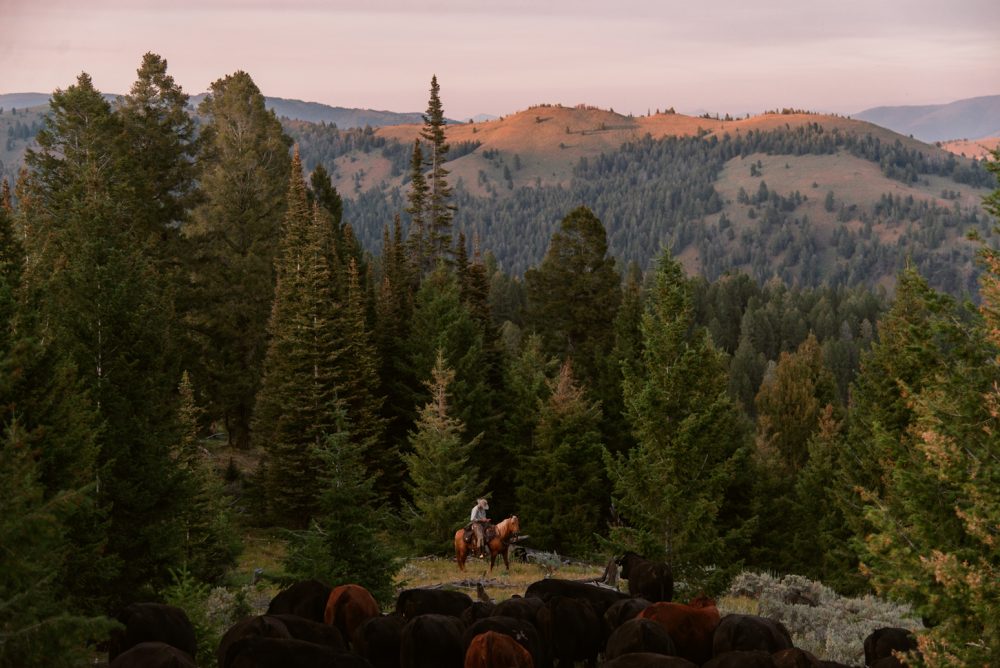
So that’s it, then, friends. Call us crazy. But if crazy sends a goodness to your table unlike any other and heals the hurts of a wild country, then it’s worth it.
Happy Trails.
Glenn

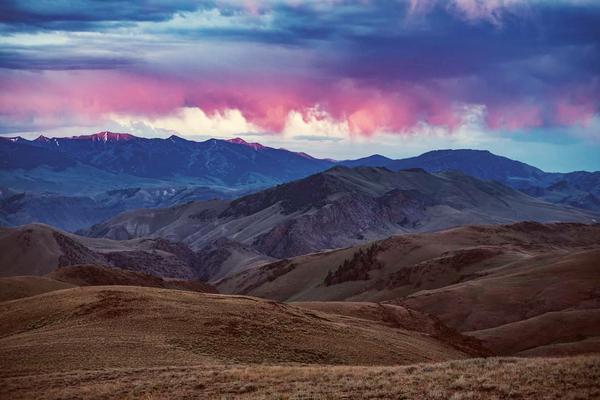


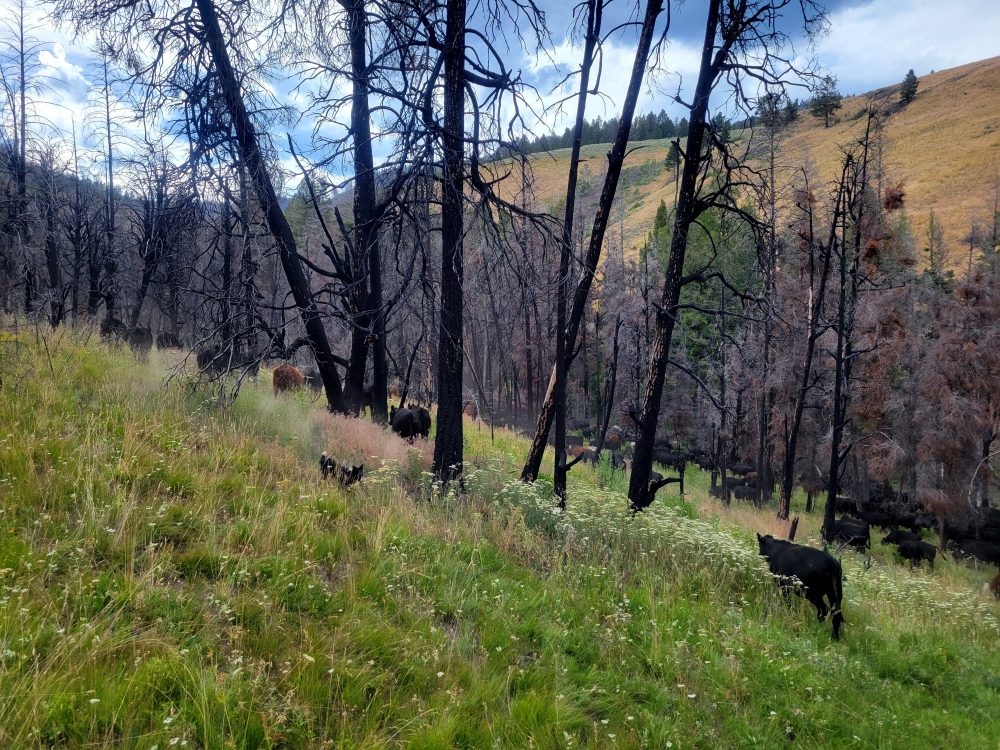

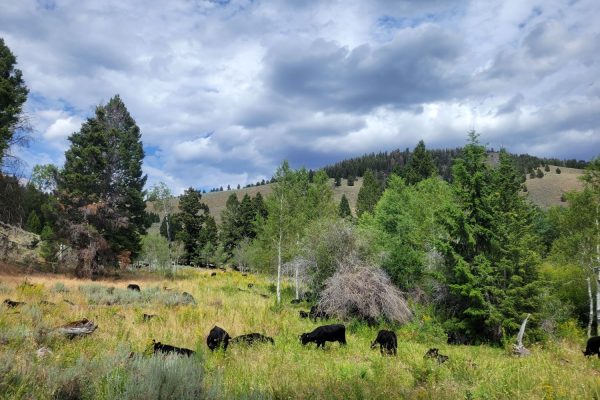
John Madany
Wonderful story! Thanks for sharing your home on the range.
Claudia Allen
You took me away…….love your writings
Grateful, Claudia Allen
Claudia Allen
You took me away……..
Grateful
Harrison Heidel
Laid up most of this summer after slipping off my horse and getting tangled in barbed wire, (lacerated hand tendons), I sat on the front porch and rode along with your range crews every day via Instagram – thanks for taking me along, it helped my healing. Grateful they are all back at the ranch as summer wanes and I’m almost healed enough to ride again. I love how you love the land and animals.
Caryl Elzinga
Sounds like a pretty nasty wreck, Harrsion! Glad you’re on the up and up. Thanks for reading along this summer!
Brian
I’ve enjoyed it all while sitting in my armchair. Love how you treat the cattle and the environment. Many thanks to the wonderful crew who work it with you.
Thanks!